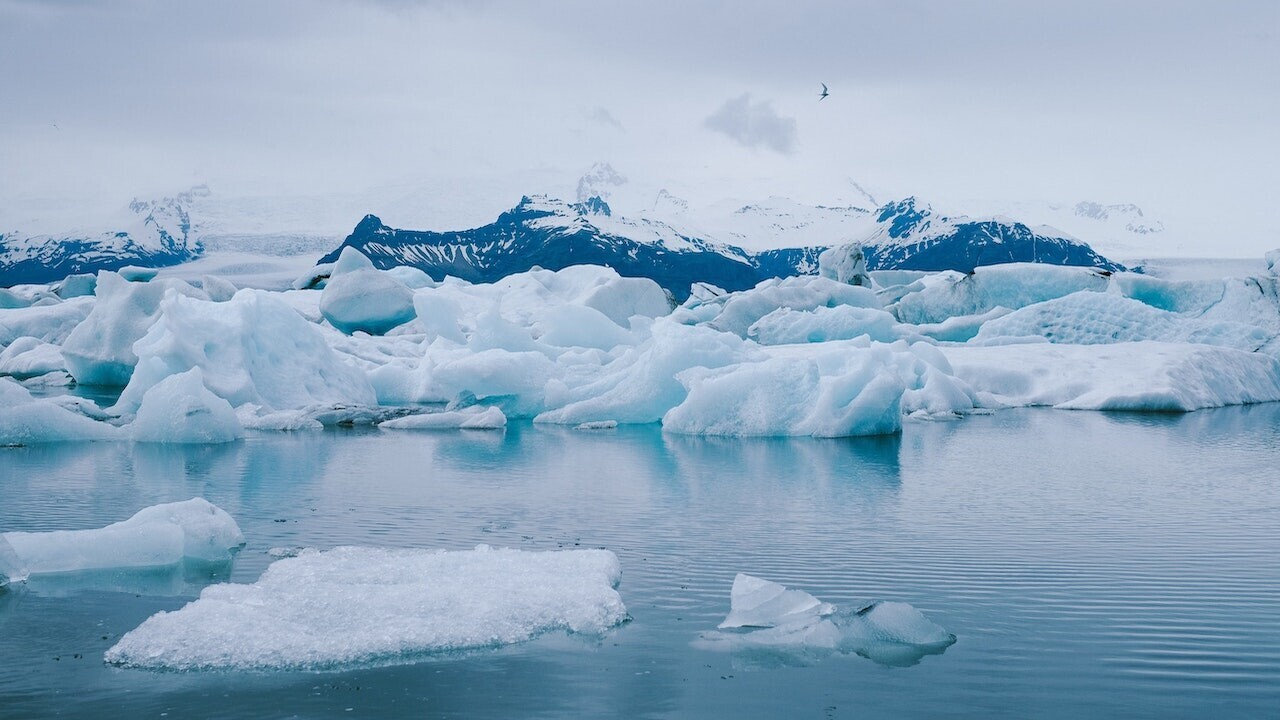
While many celebrated the potential emissions reductions achieved during a year and a half of life in quarantine, the summer of 2021 alone has seen wildfires raging across the US Pacific Northwest, Turkey, and Greece, and extreme flooding across Germany, China, Uganda, and India, just to name a few.
On July 14th the European Commission published a new set of climate change proposals aimed at bringing the bloc closer to its 2030 goal to reduce emissions by 55% (from its 1990 levels) and eventually become completely climate neutral by 2050.
The far reaching proposals cover a number of areas, expanding on past commitments and also introducing a new carbon tariff on materials such as steel, aluminium, and concrete coming from abroad. Some changes include:
- Stricter emission limits on cars, with the aim to end all petrol and diesel vehicle sales by 2035
- A revision of the EU Emissions Trading System (EU ETS) to reduce greenhouse gas emissions from the power sector, industry, and flights, including a tax on aviation fuel
- More ambitious targets for expanding renewable energy, including a tax holiday for low-carbon alternatives
- New national targets for sectors outside emissions trading, such as transport, buildings and agriculture
The European Parliament and Council will now need to review and approve the proposals in order to see them turned into binding legislation across the bloc.
But the proposals have already drawn criticism from both sides of the aisle with industry associations criticising them for placing too heavy a burden on businesses and climate change activists arguing they don’t go far enough.
According to BBCNews, Willie Walsh, the head of the International Air Transport Association, said: “Aviation is committed to decarbonisation as a global industry. We don’t need persuading, or punitive measures like taxes to motivate change.”
Meanwhile, for Greenpeace’s EU director, Jorgo Riss, “Celebrating these policies is like a high-jumper claiming a medal for running under the bar.”
While often not having as loud a voice in policy discussions, it’s the EU’s sustainability startups that have been at the forefront developing the new technological advancements that could move the EU’s transition to climate neutrality from pipe dream to reality.
We spoke with three sustainability startups from X-Europe’s smart cities program to find out what they think about the latest batch of climate change proposals, whether they believe the EU will reach its ambitious emissions targets, and their outlook for the future.
It’s time to speed up the rate of innovation

Berlin-based wind energy startup, MOWEA is ensuring all businesses have access to wind energy technology by looking to… Legos?
Instead of limiting wind energy systems to large, rural megawatt turbines, they’ve developed smaller, lightweight, modular versions that can be stacked and easily attached anywhere from the roofs of high rise buildings, to telecommunications towers, to industrial warehouses or chimneys. Its IoT features and Plug & Play nature make it especially easy to connect and scale as energy demand increases.
Yasemin Ottaviani, Business Development Manager at MOWEA, is optimistic that the latest proposals will help move the climate change agenda from talk to action:
“To date, there have been plenty of global summits to discuss the way forward to limit climate change, however, outcomes have often been criticized as too vague and focused on long-term objectives. For the first time, the EU is proposing strict and binding policies including the revision of EU Emissions Trading System (ETS) on fossil-fuel intensive industries, the abolishment of gasoline and diesel cars sales by 2035, as well as boosting regulations on green fuels and renewables to support the decarbonization of the economy.
I believe the EU Green Deal proposals are a great start to a long journey, which will certainly be followed by challenging negotiations.”
Of course, one of the chief concerns that will be on member states minds’, particularly France, will be limiting the burden on civil society as much as possible. In 2018, legislation that aimed to transition the country away from combustion engines and towards sustainable transport sparked weeks of protest and unrest from the gilet jaunes movement. To avoid similar disruption, EU member states will need to be cautious in the regulations they place on citizens.
“The cost of the energy transition, in particular to private households and SMEs, is central to the global discussion. With our increasing dependence on technology, it’s necessary today more than ever to ensure people’s safety and access to stable power. Sound policy and cross-sectoral collaboration will be necessary to provide a fair and safely operated energy system addressing people’s well-being over industries’ financial incentives,” Ottaviani says.
This is where sustainability startups will play an essential role in actually making sustainable options affordable. According to a study by the International Energy Agency in 2020, if the rate of innovation is increased by at least six years, 45% of all emissions savings in 2050 could come from technologies that have not yet reached the market. But if the rate of innovation doesn’t speed up, the increase in market costs for inputs like hydrogen electrolysers could make innovation more expensive and slower.
“This means that to enable the transition, these technologies need to be tested, pilots financed, and finally products and services launched into the market at a large scale. The faster clean technologies are developed and rolled out, the better our chances to reach carbon neutrality.
“Startups in general often lack the necessary resources to develop their solution into a commercialization stage. In contrast, corporates lack the necessary tools and mindset to embrace innovation. Therefore, investments from early-adopter corporates, as well as the financial support from responsible investors are key for clean technologies, such as modular wind energies, green construction materials, and green aviation fuel (which are typically expensive), to launch their products, increase their volume of production, spur their learning curves, and ultimately reduce their costs.”
“When clean technologies become competitive in the market, they will have a catalytic impact and lead the way to reach climate neutrality.”
Inconsistency in national legislation still a hurdle for startups

It’s clear that the EU needs to transition to renewable energy as quickly as possible to meet its objectives. For Wilhelm Appler, head of Business Development and Regulatory Affairs for gridX, the focus should now be on how and what technology we need to get there.
“With goals for expanding renewable energy and decarbonizing mobility and heating, important decisions have been taken. The main question now is, how to match fluctuating electricity generation from renewables with our increasing need for power due to electrification. Incentives for smart charging, demand response, and local optimization are still not sufficient to make sure that PV and wind surpluses are used and the need for conventional generation is reduced to a minimum.”
gridX is a Munich-based startup focused on building digital infrastructure solutions that will facilitate the energy transition. Their first product, XENON is a digital energy platform that uses IoT, cloud and edge services to deliver customizable smart energy solutions like dynamic load management for EVs and smart energy management for homes and commercial buildings.
In Appler’s view, the biggest roadblock energy transition startups, such as gridX, face is inconsistency in legislation across the bloc.
“We see ourselves as a technology provider and enabler for sustainable energy. However, the regulatory frameworks among the EU member states are still very heterogeneous. That leads to hurdles for scaling successful and proven technologies among the EU. We try to solve this challenge by offering a modular platform where our partners can customize the applications to their specific national requirements. However, a harmonization of energy regulation could enhance competition and set free resources to solve more important issues.”
While the EU’s latest proposals could help push member states to adopt more stringent and uniform energy laws, Appler is still apprehensive:
“It is a good start and gives hope that fighting climate change now has the priority it deserves. However, the EU and the member states have to prove that the new goals and measures are not only a fig leaf but rather an honest commitment. With a history of goals not achieved and insufficient measures not being adopted in a timely manner, trust has to be built.”
“Climate change is now in many countries a top priority for voters, e.g. in the current German Bundestagswahlen. We hope that this leads to a more coherent policy.”
The energy transition is just the start

While converting our businesses and homes to sustainable energy is essential, reversing climate change will require a deeper reshaping of our mentality and daily habits. For example, one area missing from the proposals is the impact of food waste.
As Sahil Wadhawan, Delivery & Process manager of TotalCtrl explained, “if food waste were a country, it would be the third highest emitter of greenhouse gas emissions after the US and China.”
TotalCtrl is an inventory management tool focused on helping mid market hotels and restaurants, schools, and care facilities optimize their planning, purchase, and use of food by providing them with data driven insights.
“There is definitely an education gap when it comes to food waste. Everyone knows it’s bad but they don’t really know the size of the problem. We work with a lot of restaurants and the first thing we say is, we can help you reduce food waste. Then they say we don’t really waste that much food. It’s not until they have the data in their hands that they realize it,” Wadhawan said.
Although regulations on food waste are absent from the EU’s latest proposals, Wadhawan has seen progress coming at the national level.
“The EU has expressed its commitment to reach the UN’s Sustainable Development Goal to halve food waste by 2030 but, again, nothing like food waste has been raised in the current regulations. However, I see individual countries enacting their own laws and regulations. For example, France has its own law that restaurants and supermarkets can face fines of up to 75,000 euros for throwing away excess food. This means supermarkets are more likely to give surplus food away to food banks or charities where it can be used again. So, although the EU isn’t focusing on food waste for now, individual countries are.”
However, the biggest challenge he sees for sustainability startups is access to sufficient funding.
“The most important change I think needs to be a shift in the companies that investors are investing their money in. There needs to be more investment opportunities and not just for startups but for startups that focus specifically on sustainability. Because the focus is on sustainability and not just profitability, sustainable startups may take more time to achieve the same result as conventional startups, but this shouldn’t detract investors.”
Similar to Ottaviani and Appler, for Wadhawan the EU’s proposals are just the beginning.
“It’s a step in the right direction but there will need to be stricter regulations and cooperation and collaboration from businesses. And there needs to be an increased focus on the entire supply chain. Covid has shown how vulnerable food supply chains are. Twenty million more people have gone hungry since Covid. Producing food requires a lot of other resources including water and land. So when you reduce food waste, you also reduce pressure on these resources.”
“We’re experiencing the effects of climate change almost every day. There are floods in Germany now which we’ve never seen before. So there is a need to focus and be more ambitious.”
Get the TNW newsletter
Get the most important tech news in your inbox each week.
This project has received funding from the European Union’s Horizon 2020 research and innovation program under grant agreement No 871795.





